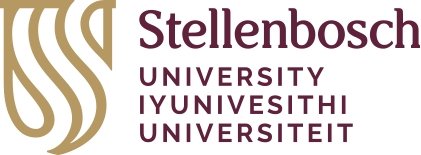
- This event has passed.
Prof Ada Jansen


Tax revenue and development in South Africa: two sides of the same coin?
In their book Rebellion, Rascals and Revenue, Michael Keen and Joel Slemrod (2021) highlight the importance of taxation since ancient times. Two examples include:
– The Rosetta Stone uncovered by Roman soldiers in 1799 contained the same text in three different scripts – with the understanding of the hieroglyphics, it became evident that taxation was the important text “worth carving out in three scripts”.
– Even much earlier than this, the Sumerian clay tablets from 2500 BCE contained information on receipts for tax payments.
In South Africa, taxation was implemented as early as the commencement of the activities of the Vereenigde Oost-Indische Compagnie (VOC). In a paper on public finances in the Dutch Cape Colony that I co-authored with SU colleagues (Fourie et al., 2013), we considered the types of taxes that the Dutch had implemented. One category was general taxes such as tithe taxes (a tenth of the harvested grain), and another was local taxes (such as poll taxes, the oldest tax of the Cape Colony, originally used for the slaughter of wild beasts, and therefore “known as lion and tiger money”).
Fast-forwarding to today, this lecture will elucidate why modern-day tax policies in developing countries do not necessarily achieve the best outcomes for development. And since most of my research focuses on the South African tax system, I will illustrate this using local examples. By way of introduction, developing countries generally aspire to achieve economic development and raise living standards. If we consider the Millennium Development Goals of 2030, key priorities are to reduce inequality and poverty, and ensure wellbeing by realising developmental outcomes such as good health services and quality education (United Nations, 2023). These outcomes are important priorities in South Africa.
I start this lecture by answering ‘yes’ to the question in my lecture title, but will later add some caveats to this initial response.
Tax systems have multiple functions, not least generating revenue. To achieve state-building capacity and advance developmental goals, governments must raise sufficient revenues to fund expenditures and implement programmes to achieve more equitable outcomes (Mascagni et al., 2014). Revenue mobilisation, therefore, is at the top of the agenda of tax policymakers, who must ensure that tax systems are designed or reformed with minimal impact on the taxpaying public. In this regard, revenue mobilisation together with tax efficiency and tax equity constitute the key components of an optimal tax system. It is well known that people do not like paying taxes, and tax policies usually elicit some behavioural response to mitigate the tax burden. For instance, do you continue to buy the same number of bottles of wine when excise duties increase year on year? As Jean-Baptiste Colbert, comptroller general of finance under French King Louis XIV, famously stated:
The art of taxation consists in so plucking the goose as to obtain the largest possible amount of feathers with the smallest possible amount of hissing.
Hence, if we can raise sufficient revenue at minimal efficiency costs, while having socially acceptable regard to fairness, developmental objectives may be achieved. South Africa’s tax system has been designed with similar objectives in mind. In an interview with the Daily Maverick, the commissioner of the South African Revenue Service (SARS), Mr Edward Kieswetter, clearly stated the importance of raising revenue and ensuring increased compliance with the tax system, emphasising the key role of a well-functioning revenue management system in ensuring adherence to tax laws (Moodley, 2023). Government aims to raise maximum revenues and ensure that taxpayers comply with tax legislation. South Africa has a well-developed tax system with a strong emphasis on raising revenue. The latest Tax Statistics publication shows that for the 2021/22 tax year, the ratio of tax to gross domestic product (GDP) was 25,1% (National Treasury & SARS, 2023). Compared to other developing countries in Africa, South Africa’s tax collection performance is relatively high and leaves less room for new taxes or higher tax rates.
But here comes the first caveat: Are we raising revenues as efficiently as possible? In other words, are we maximising revenues without causing unnecessary welfare losses in the system? The tax-to-GDP ratio is relatively high, but in spite of this, South Africa can still improve its revenue-raising capabilities. Given South Africa’s current economic outlook and constrained fiscus, it is imperative to consider to what extent we can still mobilise revenues from existing taxes without increasing tax rates.
One aspect of my research that I believe holds potential in identifying more precisely where tax policy reform should take place is knowledge of tax gaps. What do tax gaps entail, and why is it important to know about them? Conceptually, the tax gap refers to the difference between what ought to be collected given the tax base and the concomitant tax rates, and what is collected (Mascagni et al., 2014). Typically, there are two gaps of relevance, namely the compliance gap and the policy gap. The latter is created by tax legislation that allows for reduced tax liabilities. The former is typically associated with evasion activities. How are these gaps relevant to tax revenue mobilisation, you may ask? Knowledge of both of these gaps can indicate where tax authorities should direct their attention. My research on tax compliance gaps in the corporate (non-financial) sector, conducted in association with SARS researchers, has revealed significant amounts of revenue that are not accounted for in the system. We used tax administrative data from SARS and combined it with macroeconomic statistics to estimate the aggregate tax gap over a three-year period. We found an estimated tax gap for the non-financial sector of the economy of around 2% of GDP. Our research method is called a top-down approach (which relies on available macro data and uses aggregate statistics to produce one composite estimate). Applying a bottom-up approach – working with micro data such as businesses’ tax return records – will give more accurate estimations, but is also more data-intensive. One such method entails tax audits during which taxpayers undergo a detailed risk assessment. This is undertaken in advanced economies such as England (see HMRC, 2023), but is not yet applied in developing countries (Fuest & Riedel, 2009). Further research in this regard is required in the South African context.
Moving on to other policy reform options to generate revenues, one could consider removing or substantially reducing tax expenditures that erode the tax base. Tax expenditures that are immediate candidates for this kind of pruning are those that do not generate plausible social benefits, but often only add to the profits of companies that would have been in business in any event, with or without such tax benefits. These include tax incentives, which are a specialised tax provision that allows for a deviation from the general provision on investment projects so that the effective tax rates for these projects are lower than those for other projects (Zee et al., 2002). Of 44 sub-Saharan countries surveyed by James (2016), 80% offered tax holidays (a complete exemption from tax legislation). Whilst working with the World Bank on estimating marginal effective tax rates for the various sectors of the economy, it dawned on me that we should carefully consider the use of such incentives in South Africa. The World Bank report (completed in 2015) indicated that several corporate tax incentives required revisiting. Subsequently, there have been several reconsiderations of tax incentives, and in some cases, sunset clauses have been imposed. There is still work to be done on this front, as it is quite evident that tax incentives rarely influence direct investment in isolation. Instead, consideration should be given to other factors that influence investment. Importantly also, a comprehensive reconsideration of the merits of tax incentives, and their subsequent rationing, would markedly add to the fairness of the tax system.
A further focus in the area of tax expenditures (legislated concessions to pay less tax) is my recent work with SARS research colleagues in which we consider how tax expenditures such as retirement fund contribution deductions may be altered to achieve developmental outcomes. Using a microsimulation model underpinned by individuals’ tax records, we find that additional tax revenues can be raised by converting the retirement fund contribution deduction to a tax credit, similar to recent reforms in the medical tax benefit. This means that instead of deducting your pension fund income from your gross income (to get to taxable income), you deduct it from your gross tax liability. Therefore, even though there is still a tax incentive to contribute to retirement savings, the additional tax revenues raised by this conversion can be put towards priorities in the main budget, such as social transfer programmes.
Turning to another component of the tax system, I want to stress the importance of tax administration in augmenting efficient revenue mobilisation. Recent findings supporting the research of my PhD student Onesmo Mackenzie suggest that African countries are not optimising the efficiency of their tax administrations. Using data envelopment analysis, the studies reveal a disparity in the performance of tax authorities and suggest that they can improve their performance by adopting institutional reforms.
A caveat I wish to add to my discussion on the equivalency of tax revenue productivity and development is this: Raising the funds is all well and good, but if appropriate choices are not made on the expenditure side of the state’s budget, coupled with the institutional and administrative capacity to execute them, the link between revenue and development will be broken. If these issues remain unaddressed, having a well-functioning tax system – while necessary – would not be enough to attain development. This illustrates the importance of a holistic approach in pursuing developmental goals.
A further focus of my research is the efficacy of the equity role of the tax system. Although economists have contrasting views on whether the tax system should be used for this purpose, there are many examples in most countries’ tax systems. One is the progressive income tax system in which higher income earners pay higher average tax rates as incomes increase. The principle of vertical equity applies: Those with a greater ability must pay more. Another is the VAT zero-rating of certain foodstuffs with the aim to minimise the tax burden of basic products to poor households. South Africa’s VAT system also includes tax expenditures. VAT zero-rating implies that taxpayers pay a zero VAT rate on goods such as brown bread, rice, vegetables and fruit. My research into the cost-effectiveness of VAT zero-rating with an SU colleague has revealed that government should consider reducing (or at least not extending) VAT zero-rating, as equity objectives are best achieved on the expenditure side of the budget. However, considering the political feasibility, some tax reforms will obviously channel tax policy along a different reform path. This leads Slemrod (2023, citing Schenk, 2011) to conclude that if the politics of taxation prevent a certain reform, other options must be considered to achieve similar outcomes.
I end my lecture with a brief look at my latest research focus on behavioural tax policy. As mentioned earlier, people respond to tax policy and incentives, and if we want to fully estimate the economic implications of these responses, we need to know what drives behaviour. Hence, in a first step towards determining what motivates taxpayers to contribute to the tax pot, preliminary research completed with SU colleagues has revealed that even though taxpayers are concerned about problems in our country (such as corruption), they feel not only obliged to comply with the tax laws, but also responsible to contribute for redistributive purposes. These preliminary (altruistic) results bode well for Mr Kieswetter’s tax compliance drive and, in a broader sense, for the development goals of our country.
WATCH THE INAUGURAL LECTURE HERE
Short biography
Prof Ada Jansen is the chair of the Economics Department at Stellenbosch University (SU), being the first female and person of colour to hold this position. Her appointment builds on years of experience gained as lecturer, supervisor, researcher and advisor in the economic and social spheres.
Her influence also extends far beyond the University, and she has contributed to reports on behalf of UNICEF, the World Bank and the Davis Tax Committee in South Africa. Over the past decade, Prof Jansen has applied the principles of public economics to a broad set of research questions, from the public finances of the Dutch Cape Colony to estimates of South Africa’s personal income tax. In 2017/18, this earned her a ministerial appointment to the independent panel for the review of South Africa’s list of zero-rated VAT items.
She has also presented at events of the United Nations University World Institute for Development Economics Research (UNU‐WIDER) and at the African Tax Research Network international congress, among others. Prof Jansen is a member of the Economic Society of South Africa, the Economic History Society of Southern Africa, the South African Academy for Science and Arts, and the African Growth and Development Policy (AGRODEP) Modelling Consortium. She previously also belonged to the World Interdisciplinary Network for Institutional Research, and the International Institute of Public Finance.

Recent Comments